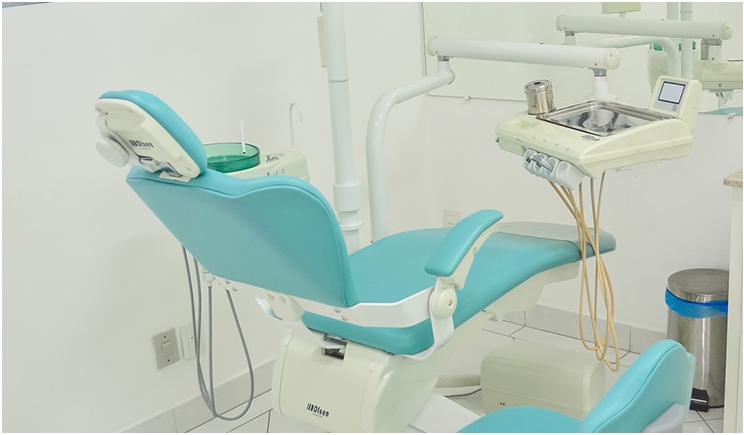
Since March 2020, businesses of all kinds have suffered from uncertainty about both the health and financial crises of the global pandemic. Dental practices across the United States were forced to alter not only their services but also their bottom lines.
While relief programs provided funding throughout the past year to keep businesses afloat, there are further opportunities that could benefit dental practices both retroactively and in the near future.
“This past year has had a significant effect on all of us in the dental profession,” said Michael Eggnatz, DDS, former president of the Florida Dental Association.
In fact, roughly three-quarters of dentists closed their offices to all patients aside from emergency appointments. At least 90% of dental practices reported either closures or significant reductions in patient visits during that time.
“We were only allowed to open if we had the appropriate personal protective equipment (PPE), all of which were in very short supply or unavailable,” Eggnatz said of Florida’s initial mandate in late March. “Our office finally opened part-time on May 26 when we could order and secure enough PPE and other equipment to keep our patients and our office team safe.”
What Eggnatz’s office also did was keep employees on the payroll, qualifying the practice for various forms of relief. Not only did his office receive Paycheck Protection Program (PPP) funds, but he also learned of the Employee Retention Tax Credit (ERTC) through his local accountant.
Working With a Professional
Tricia and Eric Golomb are the owners of a South Florida branch of Payroll Vault, a national payroll franchise whose local owners work with business owners in their specific area. The Golombs dedicated much of their efforts in the past year to ensure businesses in their community got as much relief as they could, and they say dental practices are uniquely qualified to receive that support.
“That’s a scary situation, and I can only imagine being a dentist at that time, both making sure you’re protecting everyone and also dealing with the uncertainty of your business going forward,” Tricia said. “The most important thing is just helping businesses in our community because it’s such a complex law that people don’t necessarily know about. At the end of the day, that’s funding due to them which could help their business.”
For so many business owners, dentists included, the added pressure of educating themselves in the moment while still trying to perform their everyday functions has proved a struggle, specifically as rules and guidelines change for the various relief programs.
For example, the PPP has evolved several times, from changing guidelines from the first and second rounds of loans to whether or not those funds are forgivable. Combine that with legislation such as the Families First Coronavirus Response Act, Economic Injury Disaster Loans, and now the ERTC, and there is no shortage of information for business owners to pore over.
“Unless you’re an accounting or payroll professional, it is difficult to navigate the nuances of the PPP landscape and the guidelines for the ERTC,” Eggnatz said. “But essentially because I kept my staff employed despite the loss in revenue, Tricia let me know I could expect to receive tens of thousands of dollars through that credit.”
In addition to the retroactive relief for 2020 struggles, the Golombs’ and other Payroll Vault offices around the country see the ERTC as one of the most important opportunities for small businesses going forward, including dental practices. The program extends through 2021, meaning businesses still rebounding due to patient hesitancy and health concerns could receive support. And because so many dental practices kept their staffs intact, that opportunity is available to many practices around the country.
The Need to Be Proactive
Still, with so many moving parts, it’s essential to be proactive. Legislation such as the PPP and ERTC are both new programs and frequently evolving, putting an emphasis on education between business owners and their financial and professional advisors.
“The most important thing is communication and setting expectations so they can plan for their practice,” said Eric Golomb. “One of the key things in 2020 was amending a return, which makes it a slower process on top of the IRS being backed up. It could be several months before that money comes in. But the current process for 2021 is much more of a normal turnaround if you plan right.”
No matter the state or city where a dental practice resides, there are still relief options that are likely to help bridge the gap between now and the return to normal patient visits expected in post-pandemic life.
“I try to look for the silver lining in the most difficult of times, and we all have been through the difficult year of the pandemic in 2020,” said Eggnatz, who has already determined possible uses for the ERTC funds he received.
“Finding these relief opportunities has definitely been a silver lining,” he continued. “This is money that I can use to invest in my business. It will allow me to provide the latest scanning technology in dentistry to give my patients the best care and the treatment that they deserve.”
Mr. Manning is the founder and CEO of Payroll Vault, an outsourced payroll and HR service for small businesses. He started Payroll Vault in 2007 and began franchising in 2012, now with more than 60 locations across the United States. He also is the former owner of Insperience Business Services and is the coauthor of the book Six Steps to Small Business Success.
Related Articles
The Renewed PPP Can Help Dental Practices
Dental Groups Ask for PPP Flexibility in PPE Costs
ADA Asks for PPP Updates in Next COVID-19 Relief Package











